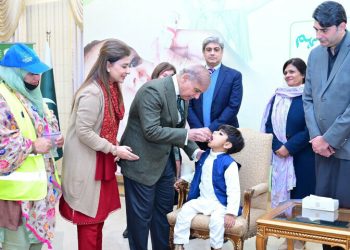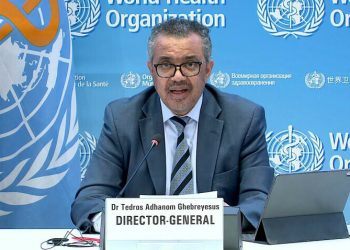Caretaker Prime Minister Anwaar-ul-Haq Kakar Tuesday reiterated the government’s resolve to eradicate the poliovirus to ensure a “polio-free” Pakistan.
Addressing a ceremony on World Polio Day in the federal capital, the prime minister vowed to resist the individuals propagating against the polio vaccination.
“I can assure [you] that we gonna have it. We will realise this dream. We will never step back […] This will always be a forth-going journey,” the premier said.
Those opposing polio vaccination were partnering with the forces of darkness, PM Kakar said. He stressed the role of religious leaders and social figures in countering such an anti-vaxing narrative.
“Today is a day to remember how far we have come and how crucial polio eradication efforts remain. Pakistan cannot be the reason to hold the world back. We must move forward to 2024 with the realisation that the weight of global eradication [of poliovirus] lies on our shoulders.”
“We must leave no room for the [polio] virus to spread, and [must] reach every child with the vaccine before the [polio]virus has a chance to permanently change their lives,” the prime minister said while expressing hope that the country would be polio-free by this time next year.
The premier also recognised the sacrifices of the polio workers and the security personnel calling them “heroes” for working in challenging environments, facing social barriers and even threats to their safety.
Meanwhile, expressing his views on the occasion, World Heath Organisation (WHO) Pakistan representative Palitha Mahipala noted that the country would get rid of the crippling disease within the next few years as the number of paralyses had sharply declined.
It is pertinent to know that poliovirus was detected in the environmental samples collected from 11 more sites in all four provinces, officials from the country’s polio eradication programme told The News last week.
The virus was also detected in Karachi, Lahore, and Khyber Pakhtunkhwa, taking the total number of positive environmental (sewage) samples in Pakistan in 2023 to 54.
















































